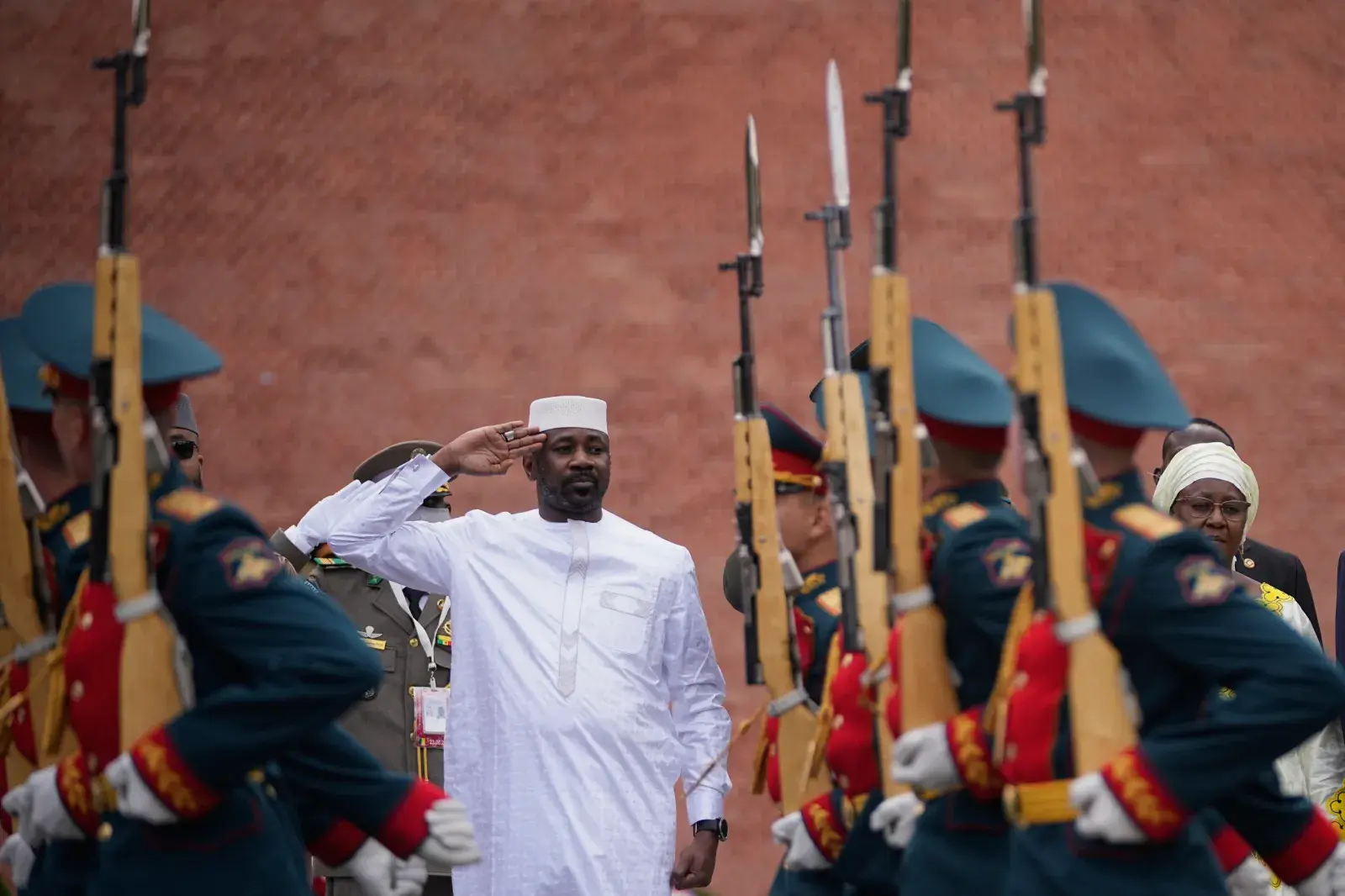A jihadist group linked to Al-Qaeda is bringing the West African country of Mali near collapse as its forces largely control rural areas and are strangling fuel supplies to the capital, Bamako. It raises the prospect of militant Islamists turning a swathe of West Africa into a new fiefdom.
Newsweek sought comment on the jihadist advances from the office of President Assimi Goïta, who seized power in a 2021 coup.
“I think what they now are trying to do is kind of blocking fuel and curbing the economy, trying to stir a protest [so] that people get rid of the military government,” said Ulf Laessing, director of the Bamako-based Sahel program at the Konrad Adenauer Foundation, a German think tank. “Then there will be another government of national reconciliation which then is open to talk to them,” he told Newsweek.
Why It Matters
If Mali’s capital were to fall to Jama’at Nasr al-Islam wal-Muslimin (JNIM), it would mark a stunning victory for the jihadists and increase the risk of Islamist takeovers in the rest of West Africa’s Sahel region and beyond.
Its successes against a military government that has Russian backing have already underscored the growing regional instability, which is spreading increasing chaos and propelling ever more migrants toward Europe and other more stable West African states and increasing political frictions there.
What To Know
Fuel is running short in Bamako because of the blockade by JNIM fighters, with long queues forming at gas stations, according to residents. The jihadists have been attacking fuel convoys heading to the capital in recent weeks. Abu Hudheifa al-Bambari, a JNIM spokesperson, released a video statement last month to warn civilians not to help the army, which is backed by a Russian force after Mali’s rulers turned against years of help from former colonial power France.
“The Russians promised a lot but then with their brutality of not distinguishing between jihadists and villagers they made the conflict worse,” Laessing said.
Goïta, Mali’s leader, said on Monday that forces of evil sought to destabilize the country and halt its development.
“I call on all those participating in these activities to cease immediately and choose the path of peace and patriotism,” he said.
JNIM is a coalition of jihadist forces and is also active in neighboring Burkina Faso and beyond.
“Mali stands on the brink of collapse, with al-Qaeda’s Sahelian branch, Jama’at Nusrat ul-Islam wa al-Muslimin (JNIM), choking off the country’s fuel supplies, leaving the government in the capital of Bamako vulnerable to being overrun,” said the New York-based Soufan Center think tank.
What People Are Saying
Ulf Laessing, Sahel program director at the Konrad Adenauer Foundation: “If Bamako falls, it will have huge implications for West Africa and give a boost to jihadists also in Burkina Faso, which they also use as a launch pad to enter Togo and Benin, where they’ve already made progress. And I guess then from southern Mali…Senegal would be next at threat.”
Mali’s President Assimi Goïta: “Our victory depends not only on our defense forces, but also on the unity and vigilance of every Malian.”
Andrew Lebovich, research fellow at the Clingendael Institute, on X: “Some analysts and journalists are conflating ‘JNIM wants Mali’s government to fall’ with ‘JNIM wants to take over Bamako and run Mali.’ These are not the same thing, and it’s important we remember that and provide evidence and nuance, even as the situation degrades further.”
What Happens Next
The jihadist stranglehold on Bamako increases the risk of yet another military coup or of protests that ultimately bring this about. While the military may be able to defend the capital with Russian support, the fact that they have so much of the rest of the country signals the rising power of the jihadists in the Sahel and will embolden them across the region.

